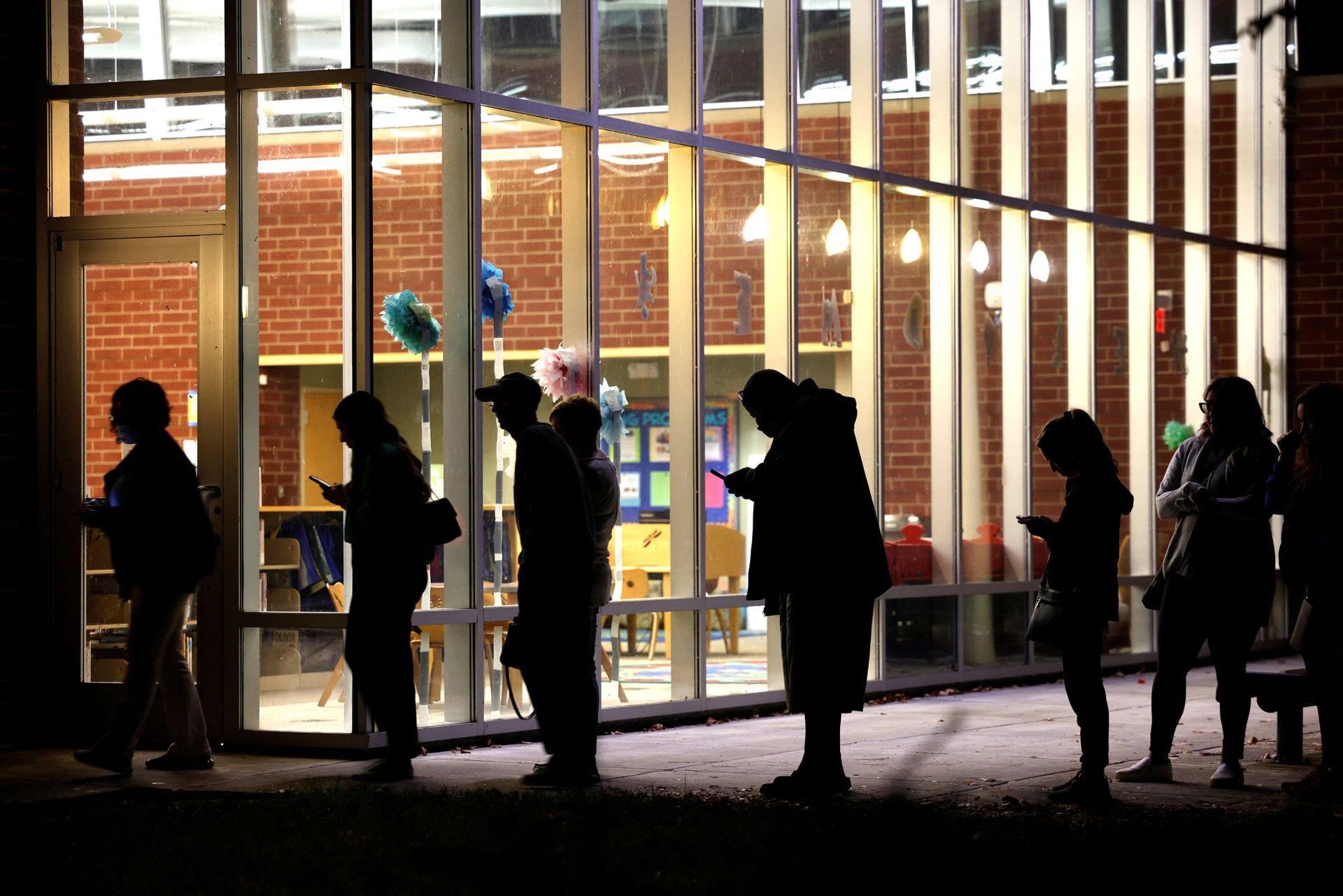The changing patterns of US politics

The US midterm election results show a recurring motif – a split ballot, where voters have chosen candidates from both the Democratic and the Republican parties, instead of voting for all candidates up and down the ballot belonging to the same party. This practice creates an apparent shift towards moderation, and it showed up in many states this election. For example, we can analyse two crucial swing states: Georgia and Pennsylvania.
In Georgia, Donald Trump's acolyte and MAGA extremist Herschel Walker lagged behind moderate Democrat Raphael Warnock, the incumbent senator. They will face each other in a run-off election on December 6. A significant contrast to Walker is Republican Brian Kemp, the incumbent governor, who won his re-election by a margin of approximately eight percentage points. Governor Kemp courageously fended off extreme pressure from the then President Donald Trump, who wanted him to manipulate Georgia's 2020 presidential election results in Trump's favour. Many 2022 midterm voters from Georgia split their ballots, rewarding Kemp and punishing Walker in a predominantly Republican state that has looked more like a swing state in recent election cycles.
A similar pattern appeared in Pennsylvania, too. Doug Mastriano, who joined the January 6 rioters at Capitol Hill, believes that Joe Biden is not a legitimately elected president. Mastriano is an ultra-right-wing MAGA devotee of Donald Trump. Moderate Democrat Josh Shapiro handily defeated Mastriano in the gubernatorial race with a whopping margin of 13 percent. This outcome differs significantly from the Senate race. Republican Mehmet Oz (the only senatorial candidate in the entire US midterm election who is a Muslim), although endorsed by Trump, presented himself as a moderate Republican and lost the election to John Fetterman by a margin of five percent.
Republican candidates who aligned with the ultra-right MAGA movement of Donald Trump did not fare well in swing states, when compared to moderate Republicans. Split-ballot voting caused several underperformances, far below expectations – so much so that relatively conservative media like The Wall Street Journal, the New York Post, and Fox News all published and broadcasted derogatory editorials, news headlines, and commentary against Donald Trump.
It is now clear that Trump's conspiracy-infested MAGA – Make America Great Again – movement has started losing steam. His ardent following in the Republican Party has precipitously fallen. In fact, a recent "survey conducted by YouGov found that 42 percent of Republicans and Republican-leaning independents said they would prefer DeSantis over Trump to run in 2024. Just 35 percent said they would prefer Trump over DeSantis," as reported by The Hill on November 12.
The Democratic Party's talking heads have also recently been emphasising their support of law enforcement and their distance from cries on the left in favour of defunding law enforcement agencies. This is a wise emphasis on moderation considering the recent increase of violent crimes across the US.
The policy stances of many Republican candidates in competitive states showed significant deviations between the primaries and the general election. One stark example is Republican JD Vance of Ohio, who drastically moderated his extreme position against abortion rights when he started campaigning against moderate Democrat Tim Ryan. Vance won the Senate seat from Ohio. This same softening transformation was adopted by several other Republican candidates even in Republican-dominated states where abortion rights appeared on the ballot. (Five states – California, Kentucky, Michigan, Montana, and Vermont – had this issue on the ballot, and voters generally were supportive of abortion rights.)
The midterm seems to have ushered in the rain of hope after six years of extreme rhetoric, political violence, insurrection, and racist demagoguery – all fuelled by a narcissistic and semi-fascist cult-personality. As the midterm results came in, I remembered "What the Thunder Said," Part V of TS Eliot's poem "The Waste Land." He alluded to the Upanishad's "Datta, Dayadhvam, Damyata," meaning welfare, self-control, and compassion. May Medicare, Medicaid, and Social Security be spared from the chopping block as Datta (welfare). May gun violence, school massacres, and hate crimes subside as Dayadhvam (self-control). And may reasonable abortion rights be restored as Damyata (compassion). Then peace shall prevail, just as Eliot said in his poem, "Shantih, shantih, shantih."
Dr AK Mostofa Sarwar is professor emeritus at the University of New Orleans, former dean and vice-chancellor of Delgado Community College, and former commissioner of the Board of Trustees of the Regional Transit Authority of New Orleans.




 For all latest news, follow The Daily Star's Google News channel.
For all latest news, follow The Daily Star's Google News channel. 


Comments